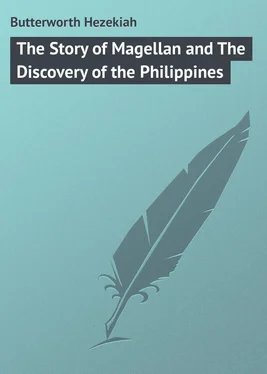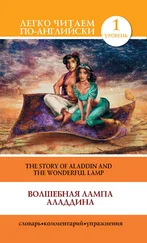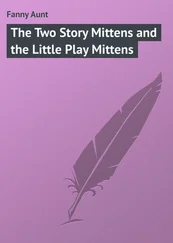Hezekiah Butterworth - The Story of Magellan and The Discovery of the Philippines
Здесь есть возможность читать онлайн «Hezekiah Butterworth - The Story of Magellan and The Discovery of the Philippines» — ознакомительный отрывок электронной книги совершенно бесплатно, а после прочтения отрывка купить полную версию. В некоторых случаях можно слушать аудио, скачать через торрент в формате fb2 и присутствует краткое содержание. Жанр: foreign_prose, на английском языке. Описание произведения, (предисловие) а так же отзывы посетителей доступны на портале библиотеки ЛибКат.
- Название:The Story of Magellan and The Discovery of the Philippines
- Автор:
- Жанр:
- Год:неизвестен
- ISBN:нет данных
- Рейтинг книги:3 / 5. Голосов: 1
-
Избранное:Добавить в избранное
- Отзывы:
-
Ваша оценка:
- 60
- 1
- 2
- 3
- 4
- 5
The Story of Magellan and The Discovery of the Philippines: краткое содержание, описание и аннотация
Предлагаем к чтению аннотацию, описание, краткое содержание или предисловие (зависит от того, что написал сам автор книги «The Story of Magellan and The Discovery of the Philippines»). Если вы не нашли необходимую информацию о книге — напишите в комментариях, мы постараемся отыскать её.
The Story of Magellan and The Discovery of the Philippines — читать онлайн ознакомительный отрывок
Ниже представлен текст книги, разбитый по страницам. Система сохранения места последней прочитанной страницы, позволяет с удобством читать онлайн бесплатно книгу «The Story of Magellan and The Discovery of the Philippines», без необходимости каждый раз заново искать на чём Вы остановились. Поставьте закладку, и сможете в любой момент перейти на страницу, на которой закончили чтение.
Интервал:
Закладка:
He became jealous of Mesquita, Magellan's cousin, now master of the Antonio, who is thought to have advised severe measures to suppress conspiracy.
Night after night he sat down under the moon and stars, and brooded over his fancied neglect, and dreamed. Night after night the ships followed the lantern of Magellan, and the wonders of the sea grew; but to him it were better that no discoveries should be made than that such achievements were to go to the glory of Spain through the pilotage of Magellan.
Discontent grows; jealousy grows as one broods over fancied wrongs, and sees the prospects of a rival's success. So it was with Gormez. In his heart he did not wish the expedition to succeed. He was ambitious to lead such an enterprise himself, which he also did, at last, sailing along Massachusetts Bay and giving it its first name.
When Gormez had heard that the two disloyal men were to be marooned, his feelings rose against Magellan. That they deserved their sentence he well knew, but they were opposed to Magellan, as was his own heart. He would have been glad to have saved them from the execution of their sentence, but he did not know how to do it.
"I will rescue them if ever I can," he thought. "This expedition is not for the glory of Portugal."
The ships sailed on, bearing the two conspirators to some place where they could be marooned.
Let us turn from this dark scene to one of a more hopeful spirit.
One day, as we may picture the scene, the sea lay unruffled like a mirror. The ships drifted near each other, and night came on after a sudden twilight, and the stars seemed like liquid lights shot forth or let down from some ethereal fountain. The Southern Cross shone so clearly as to uplift the eyes of the sailors. The ships were becalmed.
Boats began to ply between the ships, and the officers of the Trinity, Santiago, Victoria, and Concepcion assembled under the awning of the San Antonio, Mesquita's ship, of one hundred and twenty tons.
Mesquita, as we have said, was a cousin of Magellan, and so the Antonio seemed a friendly ship.
Magellan sat down by his cousin. The lantern was going out; its force was spent.
"We must get a new kind of lantern," said Magellan to his cousin, "and a code of signal lights. We need a lantern that is something more steady and durable than a faggot of wood."
"I have here a new farol," he continued, the men listening with intent ears. "Here it is, and I wonder, my sailors, how far your eyes will follow it."
"All loyal hearts will follow it," said Mesquita, "wherever it may go."
Gormez frowned. His heart was bitter.
There rose up an officer named Del Cano, and stood hat in hand. All eyes were fixed upon him.
"May it please you, Admiral," he said, "to receive a word from me. I will follow the new farol wherever it may lead me. I have ceased to count my own life in this cause."
Gormez frowned again.
"Del Cano," said the Admiral, "I believe in you. You have a true heart. If I should fall see that this farol goes back to Spain!"
Del Cano bowed.
Magellan showed the new lantern to the officers. It was made of beaten reeds that had been soaked in water, and dried in the sun. It would hold light long, and carry it strongly and steadily.
"All the ships must have these new farols," said he, "and I must teach you how to signal by them."
He stood up. The moon was rising, and the dusky, purple air became luminous.
He held the farol in his hand.
"Two lights," he said, "shall mean for the ship to tack.
"Three lights that the sails shall be lowered. Four, that they shall stop.
"Five lights, or more, that we have discovered land, when the flagship shall discharge a bombard. Follow my lantern always; you can trust it wherever it may fare. My farol shall be my star!"
The men sat there long. There sprung up a breeze at last, and the sea began to ripple in the moon.
Most expeditions that have made successful achievements have carried men of great hope. Such a man was Del Cano. He was loyal to the heart of Magellan; and happy is any leader who has such a companion, whose steel rings true.
Magellan hung out the farol. The sails were spread, and the fleet passed on over the solitary ocean.
Whither?
CHAPTER VIII
"THE WONDERS OF NEW LANDS." – PIGAFETTA'S TALES OF HIS ADVENTURES WITH MAGELLAN. – THE STORY OF "THE FOUNTAIN TREE." – "ST. ELMO'S FIRE."
The ships moved on, bearing the hopeful Del Cano, the frowning Gormez, the two prisoners, and the happy Italian Pigafetta.
Our next chapters will be a series of wonder tales which reveal the South Temperate Zone and its inhabitants as they appeared to the young and susceptible Italian, Pigafetta, nearly four hundred years ago.
Pigafetta, as we have shown, desired to accompany Magellan that he might "see the wonders of the new lands." He saw them indeed, and he painted them with his pen so vividly that they will always live. We get our first views of the strange inhabitants of the Southern regions of the New World from him. We are to follow his narratives, as printed for the Hakluyt Society, London, making some omissions, and changing its form in part, hoping thereby to render the text more clear. We closely follow the spirit of events. Pigafetta addresses his narrative "To the very illustrious and very excellent Lord Philip de Villiers Lisleaden, Grand Master of Rhodes," of whom we have spoken.
He says, by way of introduction:
"Finding myself in Spain in the year of the nativity of our Lord, 1519, at the court of the most serene King of the Romans (Charles V), and learning there of the great and awful things of the ocean world, I desired to make a voyage to unknown seas, and to see with my own eyes some of the wonderful things of which I had heard.
"I heard that there was in the city of Seville an armada (armade) of five ships, which were ready to perform a long voyage in order to find the shortest way to the Islands of Moluco (Molucca) from whence came the spices. The Captain General of this armada was Ferdinand de Magagleanes (Magellan), a Portuguese gentleman, who had made several voyages on the ocean. He was an honorable man. So I set out from Barcelona, where the Emperor was, and traveled by land to the said city of Seville, and secured a place in the expedition.
"The Captain General published ordinances for the guidance of the voyage.
"He willed that the vessel on which he himself was should go before the other vessels, and that the others should keep in sight of it. Therefore he hung by night over the deck a torch or faggot of burning wood which he called a farol (lantern), which burned all night, so that the ships might not lose sight of his own.
"He arranged to set other lights as signals in the night. When he wished to make a tack on account of a change of weather he set two lights. Three lights signified "faster." Four lights signified to stop and turn. When he discovered a rock or land, it was to be signalled by other lights.
"He ordered that three watches should be kept at night.
"On Monday, St. Lawrence Day, August 10th, the five ships with the crews to the number of two hundred and thirty-seven 4 4 The number was larger, about 270.
set sail from the noble city of Seville, amid the firing of artillery and came to the end of the river Guadalcavir (Guadalquivir). We stopped near the Cape St. Vinconet to make further provisions for the voyage.
"We went to hear mass on shore. There the Captain commanded that all the men should confess before going any further.
"On Tuesday, September 20th, we set sail from St. Lucar.
"We came to Canaria (Canaries)."
This account repeats in a different way a part of the facts we have given.
Here the young Italian relates his first story, which is substantially as follows:
Читать дальшеИнтервал:
Закладка:
Похожие книги на «The Story of Magellan and The Discovery of the Philippines»
Представляем Вашему вниманию похожие книги на «The Story of Magellan and The Discovery of the Philippines» списком для выбора. Мы отобрали схожую по названию и смыслу литературу в надежде предоставить читателям больше вариантов отыскать новые, интересные, ещё непрочитанные произведения.
Обсуждение, отзывы о книге «The Story of Magellan and The Discovery of the Philippines» и просто собственные мнения читателей. Оставьте ваши комментарии, напишите, что Вы думаете о произведении, его смысле или главных героях. Укажите что конкретно понравилось, а что нет, и почему Вы так считаете.












